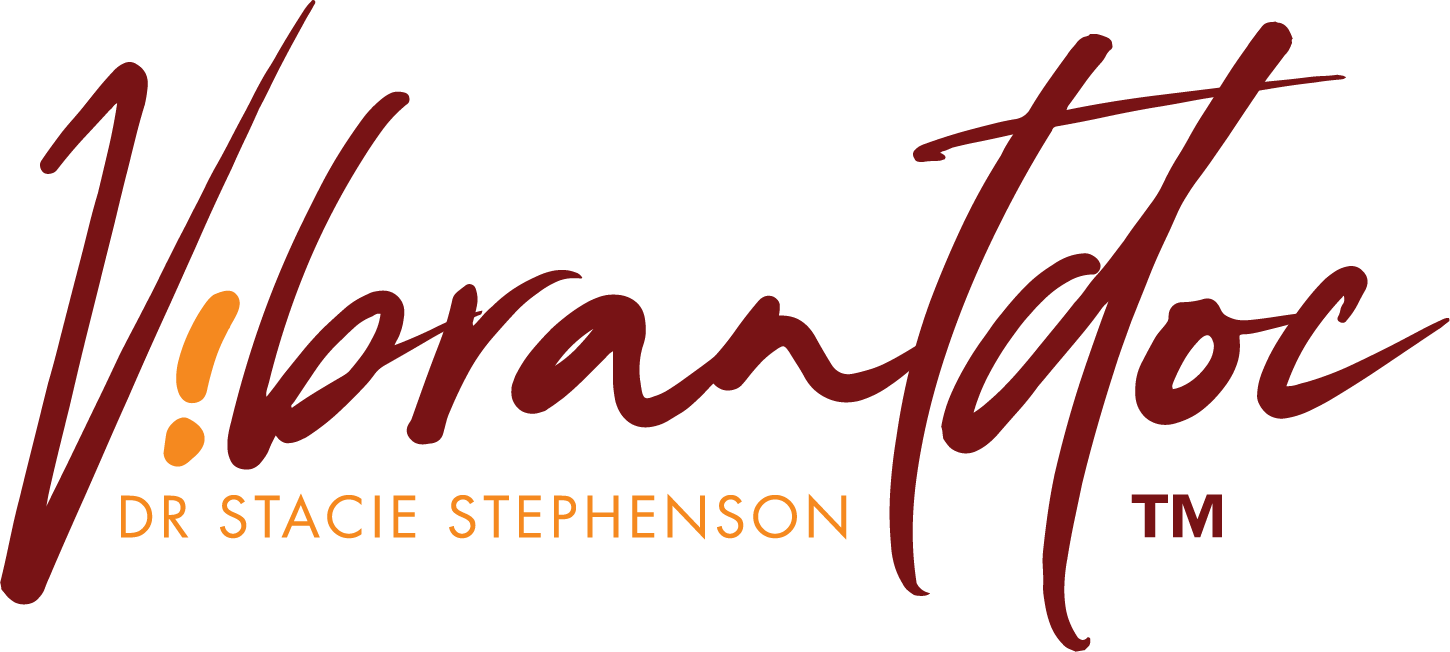Immunity is a hot topic these days, but I’ve always believed it is what underpins health in any situation. Whether it’s cold season, a virus is going around, or you’re feeling just fine, your immune system is always working vigilantly to keep you functioning at your peak…that is, unless you aren’t giving it the things it needs to do its very important work for you.
The immune system is your body’s first responder, but without some key vitamins for support, you might not be as good at fighting off whatever you might be exposed to.
While I will be among the first to jump up and assert that what you choose to eat is your first best strategy for building strong functional immunity, the reality is that most of us can’t or don’t get enough of the essential vitamins we need from food alone, and because of declining soil quality and industrial farming, our food isn’t as nutrient-dense as it once was. This is why daily vitamin supplements can be an important insurance policy for immune support as well as overall health.
But a conventional doctor might tell you that vitamins are unnecessary (this may be the same doctor who tells you that it doesn’t matter what you eat).
The truth is that research on the benefits of supplements is quite varied with mixed results, and I’ve found that those studies claiming vitamins “do nothing” are often set up in a way that isn’t informative in terms of health optimization.
The functional medicine perspective is somewhat different. While there are established RDAs (recommended daily allowances) for essential vitamins, these are minimums to prevent disease. Functional medicine doctors are more interested in natural avenues to optimal health, so we tend to recommend dosages that are higher than the RDAs. We also know that each person is unique and therefore, nutritional testing can be useful for determining what your levels are. Maybe you have enough vitamin B-12 and maybe you don’t. You are likely low on vitamin D, but maybe you aren’t. A functional medicine doctor can run a full nutrition panel for you, and customize a supplement regimen to meet your exact needs.
But many people aren’t willing or able to visit a functional medicine doctor right now, and I get that. Are there some vitamin basics you can take, to cover your bases? Absolutely. Especially now, when immune health and strength is so important, let’s look at what you can do to make sure you get the nutritional building blocks you need to support the immune system you want.
How to Take Your Vitamins: The Basics of Building a Vitamin Routine
You might already be thinking you are good to go because you take a multivitamin, but I don’t recommend multivitamins for a number of reasons. Many if not most of the multivitamins you see on the shelves don’t contain a therapeutic dosage of many of the vitamins in the formula—they may contain excessive amounts of some things and deficient amounts of others. Many also contain versions of vitamins or minerals that you can’t absorb. For instance, many cheap vitamins contain vitamin D2, but you want the more readily absorbed vitamin D3. Some contain the inactive form of B12 called cyanocobalamin, but you want the superior active form, methylcobalamin. Large “horse pill” multivitamins tend not to break down quickly enough to be absorbed. Many also contain cheap fillers and binders as well as artificial colors and preservatives, some of which could be allergenic or toxic. And some vitamins, when tested, are revealed not to contain what they claim.
To target your needs more specifically, take vitamins and other supplements individually and consistently. A daily morning and evening supplement routine that becomes a habit is the key to building a foundation of health support. Taking your vitamins randomly, when you happen to think about it, really isn’t helpful. The occasional burst of vitamin C or D or B complex will not support your system in the way that regular long-term daily use can and will.
I also recommend starting small and gradually building more supplements into your routine, as needed. As your system gradually adjusts to regular supplement intake, you’ll avoid any stomach discomfort as well as that gagging response some people get when they have to swallow too many capsules.
Timing is also important. Different supplements are better absorbed at different times of the day and with or without food. While there are many different supplements you could take, I suggest starting with just three basic vitamins in the morning and three in the evening. I’ve also listed a bonus non-vitamin supplement in each category.
Your Morning Vitamin Routine
In the morning, it’s best to take vitamins that give you energy, and those that are water-soluble, which are best absorbed on an empty stomach. Take them before breakfast.
My top three “starter set” morning vitamins include:
- Vitamin C. Start by taking 1,000 mg. Your body processes and eliminates vitamin C quickly via the kidneys, so ideally, you would work up to taking a dose 3x per day, for a daily total of 3,000 to 5,000 or even a bit more, if it doesn’t bother your stomach. It is absolutely critical for immunity!
- Vitamin B complex, which is also water-soluble. As I’ve mentioned, normally I do not recommend vitamin complexes, but B complex is an exception. Look for a formula that includes all 8 essential B vitamins: thiamine (B1), riboflavin (B2), niacin (B3), pantothenic acid (B5), pyridoxine (B6), biotin (B7), folate (B9) and cobalamin (B12). The B vitamins have many important functions, including energy, growth, digestion, organ function, and hormone production. Look for methylated versions, which are easier for your body to absorb. Vitamin B12 in particular will give you a boost of morning energy.
- Coenzyme Q10, or CoQ10 is not technically a vitamin, but it is an antioxidant like vitamins C and E. It is fat-soluble but I recommend it for the morning because it facilitates energy production in the mitochondria. It’s also excellent for your heart. I recommend taking about 200 mg with your first meal.
BONUS: Probiotics are friendly bacteria that help to balance the microbes in your gut in your favor. Your microbiome is an important component of your immune system and increase your body’s ability to absorb the vitamins and minerals in your diet. There are many different “friendly flora” combinations in different probiotic supplement formulas, so to increase your microbial diversity (that’s a good thing), I recommend rotating your probiotic supplements, to get as many different species as you can.
Your Evening Vitamin Routine
For your evening routine, fat-soluble vitamins are best. When you take them after dinner, the food you ate will help to increase your body’s absorption. This is also a time to take supplements with a more calming effect.
These are my three must-haves for before-bed supplementation:
- Vitamin D3, up to 5000 IU, which is essential for immune function. After vitamin C, I would say that vitamin D is the most critical vitamin to supplement with. Vitamin D may be one of our most pervasive deficiencies. According to the former director of the Centers for Disease Control (CDC), approximately 40% of Americans don’t get enough, but I believe this number is actually quite a bit higher. Conventional medicine doesn’t consider someone to be vitamin D deficient unless they have less than 20 ng/mL of vitamin D in their blood. Some even say you are not deficient unless you have less than 12 ng/mL. Those of us trained in functional medicine, however, believe that everyone should have a vitamin D level of at least 50 ng/mL, and ideally over 100 ng/mL. I can assure you that most people in the U.S., with our indoor lives and seasonal climates and sunscreen use, are well below that number (the body manufactures vitamin D in response to sunlight on the skin). If you want to build immunity right now as well as far into your future, make it a habit to get about 15 minutes of sun on your skin every day when you can, and take a D3 supplement daily all year round. If you are deficient (a simple blood test can tell you), you can take up to 5000 IU per day, but I recommend taking at least 1000 IUs daily.
- Vitamin K2 is another fat-soluble vitamin that is directly complimentary to vitamin D3. One of vitamin D3’s many benefits is that it helps you absorb calcium. Vitamin K2 helps that calcium get deposited into your bones and teeth, where you want it, rather than in your arteries, where you don’t want it. Even though most people haven’t heard of vitamin K, many people are deficient because it’s richest in foods many people don’t eat much of (like fermented foods and organ meats). Take vitamin K2 (not vitamin K1) with vitamin D3 in the evening—90 mcg for women, 120 mcg for men. (Note that if you eat organ meats and/or fermented foods a few times a week, you may not need to supplement with vitamin K2.)
- Vitamin E is a fat-soluble antioxidant vitamin, which means it fights oxidative damage in the body, which can help with inflammation. Vitamin E also bolsters immunity, helps to make muscle and red blood cells, and is great for improving eye and skin health. Look for a formula containing mixed natural tocopherols, rather than the synthetic form, which will contain dl-alpha-tocopherol. I recommend a dosage of 400 IU.
BONUS: Magnesium citrate or glycinate is a mineral with many important functions, but for evening supplementation, its biggest benefits are its ability to calm the mind and relieve anxiety, improving sleep quality (especially magnesium glycinate) and also to move the bowels (especially with magnesium citrate), which is helpful if you tend to be constipated. The easiest form to find is magnesium oxide, but magnesium citrate and magnesium glycinate are more absorbable forms. Choose which type to take based on which issue you are more concerned about (sleep quality or regularity).
As you get used to a supplement routine, you can explore some of my other blogs about how to expand your supplement repertoire. Look for present and future blogs on aged garlic, berberine, melatonin, EPA/DHA, ginseng, ashwagandha, astragalus, turmeric/curcumin, zinc, alpha lipoic acid, bacopa, N-acetyl cysteine, NAD+, and more. But don’t worry about getting too advanced until you master the basics: Take your morning and evening supplements, and you could begin to feel more energetic and vibrant in less than a month.


